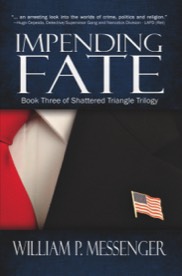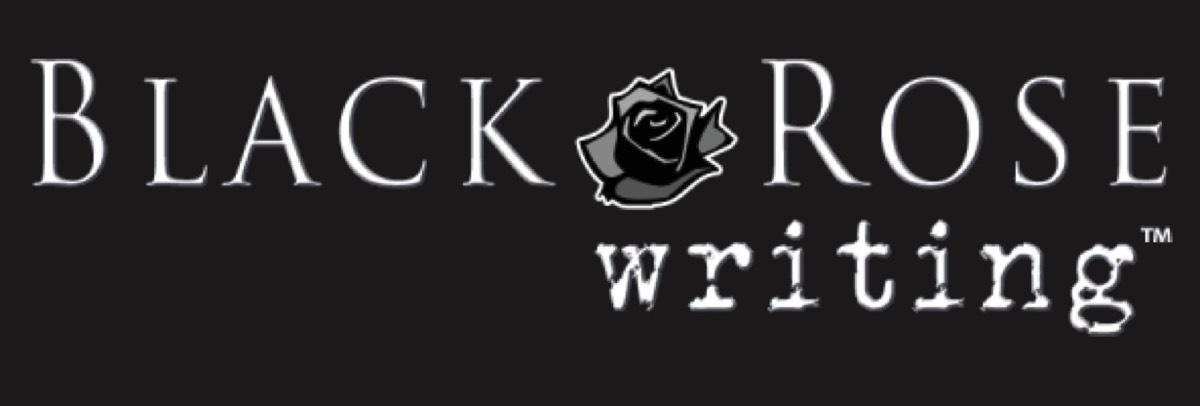
Prologue
April 2003
I am an identical twin and inhabit an almost unique world. There are, after all, not that many of us. And although others might find us perplexing, we are not that different from singletons. Contrary to popular belief we do not act or respond in concert; there is no invisible strand of intuition enabling us to sense one another’s feelings while separated by distances great or small; we don’t even think alike. We just look alike.
As a child there were times I enjoyed being a twin. My brother and I were often the recipients of special attention. Indeed, we were cute boys and most of the time it was fun to watch adults fawn over us. In school we did not play any of the stereotypical games such as changing seats in the classroom. It was sufficient to watch our classmates and teachers struggle to tell us apart.
As we grew older our interests diverged. That much was to be expected. We were not the same person. But it was not until my sister-in-law and her children were murdered that I realized how different we had become.
On April 29, 2003, I met with my brother, Senator Giuseppe Lozano, in his Washington, D.C., office. It was one last, futile attempt to discover if there was anything we still had in common. When I left him I regretted even the facial similarities. He was no longer someone I wanted to mirror in physical appearance. Nor was he someone I wanted to possess in my heart. My name is Giovanni Lozano, a priest from the Archdiocese of Los Angeles. And my brother is a murderer.
***
Chapter 1
Secrecy. A critical element of childhood, it can often be a joy. The experience of entrusting another with our privileged information or our innermost thoughts is a test of friendship. It builds surety and speaks significantly about the value we place on those closest to us. Exchanging confidences continues into adulthood, but along the way it loses the innocence and fun of juvenility. Although still a test of faith, it frequently becomes burdensome with age.
In Catholic sacramental life, the seal of confession carries a gravity beyond even the deepest confidence, shrouding the priest in a secret solitude. Most of the time it is not difficult to maintain the privacy of the sacrament. It is a welcome safeguard that helps people develop the courage to change their lives, even to find healing and peace. When it is abused by either priest or penitent, the promise, the hope, the joy of forgiveness becomes onerous. Such was the case with my twin brother, Giuseppe.
I learned in the confessional that he was responsible for his family’s murder. He did not pull the trigger, but he arranged for their deaths. As if that were not bad enough, he manipulated me, choosing to admit his action in a mockery of the sacrament. He knew full well that I would be bound to secrecy, and thus prevented from revealing the truth or even hinting at it with Lt. Tom Moran, a close friend and LAPD detective. But I also think Giuseppe is diabolical enough to know that this knowledge would weigh upon my psyche, perhaps hoping that it would incapacitate me. In that he was not far from the truth.
For two-and-a-half years, every waking day, I carried the strain of knowledge. That’s one reason I went to see him. I wanted to believe that there was still some good in him, that I could reach the depth of his soul, his conscience. I was wrong and returned to Los Angeles convinced that my brother of almost fifty years was no more. He had become a stranger in the truest sense of the word. But this was a revelation I could not share with family or friends. My parents, my sister, and others believed Giuseppe to be a victim. And I was in no position to dispossess them of that belief.
***
I returned home late Tuesday night overwhelmed by my failure and the stark truth I now had to face. On Wednesday, April 30, I called Lt. Tom Moran and asked him to come over that evening for a drink. We had known each other from the age of six, and although I count some priests among my intimate friends, of everyone I know including family, Tom is closest to me. As a lieutenant in the Los Angeles Police Department, he was lead detective in investigating the murder of my brother’s family. Like me, he happened upon the truth and, like me, was manipulated by Giuseppe in such a way that he was unable to publicly solve the case. Before visiting my brother in Washington I had not told Tom about my trip. Now I felt a need to share that experience and my deepening concerns.
When Tom arrived I already had his drink waiting. We are both scotch drinkers and over the years had become particularly fond of Pinch. Like other such evenings I was comfortably in the company of two old friends. There were two cozy chairs in the room. He chose the recliner, leaving the rocker to me.
“How’s Emily?” I asked.
“As feisty as ever,” he laughed. “Life’s been good since we got back together.”
“Well, from my perspective, between your transfer to the Counter Terrorism and Criminal Intelligence Bureau and your remarriage to Emily, you’re calmer, more settled than you’ve been for a long time. It’s good to see you more like your old self.”
“One thing’s certain, Gio. It’s nice to have someone to go home to.”
“Tom, I need to talk to you about Giuseppe. That’s why I didn’t ask you to bring Emily tonight. I just returned from Washington, D.C.” I had told him nothing about my intentions during my recent absence, but the statement did not appear to raise any questions. I doubt he ever considered that I would go to see my brother and probably assumed that I had some church business in the capital. “I went to Washington specifically to see him.”
I had known Tom all my life and thought I could predict every one of his reactions, but not this time. His expression did not register the surprise I expected. In fact it did not register anything at all. He just looked at me and asked why. The question was not quite accusatory, but still I felt ill at ease and had to tread cautiously. Once someone has made a confession, the priest is not allowed to bring up the subject matter even to the person who confessed. When I visited my brother I did exactly that, knowing that he would not report me to church authorities. But it would be something else entirely if I spoke about the confession to Tom.
“I can’t put the murders out of my head,” I continued. “I know this has weighed on you, also. But Giuseppe is my twin brother and I can’t figure him out. I went to try to get him to say something to me, something that would help me finally bring this whole thing to a close.”
“Gio, I’ve never thought of you as a simpleton, so tell me. How could you possibly think he would admit anything to you? I’ve reached the conclusion that your brother’s a true psychopath. I think you know it, too.” He paused briefly then said with determination, “You’re not going to change him.”
“Tom, I’ve always believed that no one is beyond the redemptive power of God. That idea has driven my priesthood for more than twenty years. I thought I could reach him.” My voice trailed off betraying a certain resignation.
Tom’s tone of voice was surprisingly gentle. “Did Giuseppe say anything at all?” he asked.
“Well, we talked about some things I can’t share with you.”
“You mean things like the confession?” He knew exactly what I meant. We both did. But by church law it had remained unspoken between us. Tom tried a few times to break my resolve, to convince me to violate the sacrament. This time was different. His question was almost more of a statement. And I appreciated that he was not trying once again to draw me into forbidden territory.
“Yes,” I replied. “But he added nothing. He feels safe in knowing that anything he said to me that December will remain private. He did say one thing, though, that I can share. He claims he was not involved in Jean-Paul Lecuyer’s murder.”
Up to this point Tom had seemed somewhat disinterested in my visit with Giuseppe. Now, however, he was intrigued.
“Did you believe him?” he asked.
“I’m not sure I believe anything he says anymore. But he did point out that they had only met on two occasions when Jackson and Jean-Paul visited Washington. As Giuseppe says, there was no motive for him to kill Lecuyer.”
“Yeah,” Tom said. “That’s the missing link right now. When I met with the Brussels police the only thing to go on was the modus operandi, single shots to the head or heart, a Glock 9mm left at the scene. Like the murders of Yolanda and the kids it was clearly professional. Also like theirs, no usable forensic evidence was left behind—no fingerprints, no DNA. A motive would be helpful, critical even. I have to admit, though, that even if one were to turn up it would be difficult to tie Giuseppe to Jean-Paul’s death. But when you look at the matching M.O.—I just don’t believe in those kinds of coincidences.”
“Neither do I,” I replied. “But we’re dealing with a professional assassin. It stands to reason that he has done this before and will continue in the future. It’s not inconceivable that he would have clients around the world.”
“Are you trying to convince me or yourself?” Tom asked.
“I don’t know. I’m just grasping and I don’t know how much longer I can hold on. I’ve expended so much energy these last couple of years trying to contain my knowledge and mask my depression. If Giuseppe was not involved in Jean-Paul's death and that of his friends, then that’s a ray of hope.”
“Gio, I don’t like the idea of you playing detective. It’s beyond your skill set. Your talents lie elsewhere. I don’t care if you talk to Giuseppe about Yolanda and the kids, but I want you to leave the Brussels killings alone. We may never know the why of those murders. Besides, it’s not our business. It’s someone else’s problem. Let’s suppose Giuseppe did have something to do with it. If you get too close, do you think you’ll be safe? He has no qualms about eliminating people he thinks are in his way. Let the Belgian authorities handle their own case. As for Yolanda and the kids, we’ll just never be able to prove what we both know. And since I’m not on the case anymore, I’m content to focus my attention on my new job and try to keep Los Angeles safe from terrorists.
“In my opinion you need to give up on your brother. I know you’re not going to betray the sacrament and you know you can’t change Giuseppe.” He took a drink of scotch, swirled the glass in his hand, and said, “I’m worried about you, Gio. If you don’t find a way to put this behind you, you’re going to crack. I see the stress every time we get together. Emily’s noticed it, too.”
“Have you said anything to her?” I asked.
Of the many things I knew to be true of Tom one was that he was a fierce and loyal friend, another that he was an excellent detective. But that last characteristic also bred a unique skill for deception. His concern for me would not allow him to answer my question honestly. I did not know it at the time, but only one week before he had stoked his wife’s journalistic curiosity by suggesting that the Los Angeles Times initiate its own investigation into the Lozano and Lecuyer murders. He shared with her what he had learned during the investigation, including Giuseppe’s admission of guilt. However, he was not ready to reveal that to me. He chose, instead, to lie.
“So far, Gio, I’ve managed to deflect her comments. But she’s bright—more so than either of us. She’s seen how your parents and your sister have adjusted. Then she sees you. It’s only a matter of time before she pieces things together. Nothing goes unnoticed with her.”
He had a point. Emily had not pressed me about the murders since she came back into our lives, but she surely noticed a darkness in my mood. Maybe Tom was right. I should let it all go. How incomprehensible that the suggestion should come so easily while its execution remained impossible.
Tom continued. “Listen, Gio. I know better than anyone the tension you’re under. You haven’t really taken any time for yourself. For example, when was your last vacation? You and your friends enjoy Mexico so much, why not take a week and go to Puerto Vallarta?”
“Funny you should mention it,” I replied. “Perry called the other day to suggest that very thing. He wants to go in August. Maybe I should. It’s just so damn hot and humid down there during the summer.”
“Then you can sweat your tension away,” Tom suggested.
“Well, I have to let him know soon so he can arrange the flights. In the meantime I had to tell you about my trip to Washington. I just don’t want any secrets between us.”
It might have been my imagination but I thought I saw Tom briefly dart his eyes away as if trying to hide a reaction to that last comment, possibly the result of guilt since he had not told me the truth about his revelations to Emily. It was nearly imperceptible and now I know I was right. In any case I was glad I told him why I went to D.C. and what had transpired there. His response was measured and he left me with good advice. He was probably right regarding my brother, too. If I wanted to be honest with myself I had been inching toward the same conclusions for many months. But judging my brother for what he had become and forgetting what he had done were worlds apart. I said good night, and after Tom left, I prepared for bed.
PURCHASE NOW








